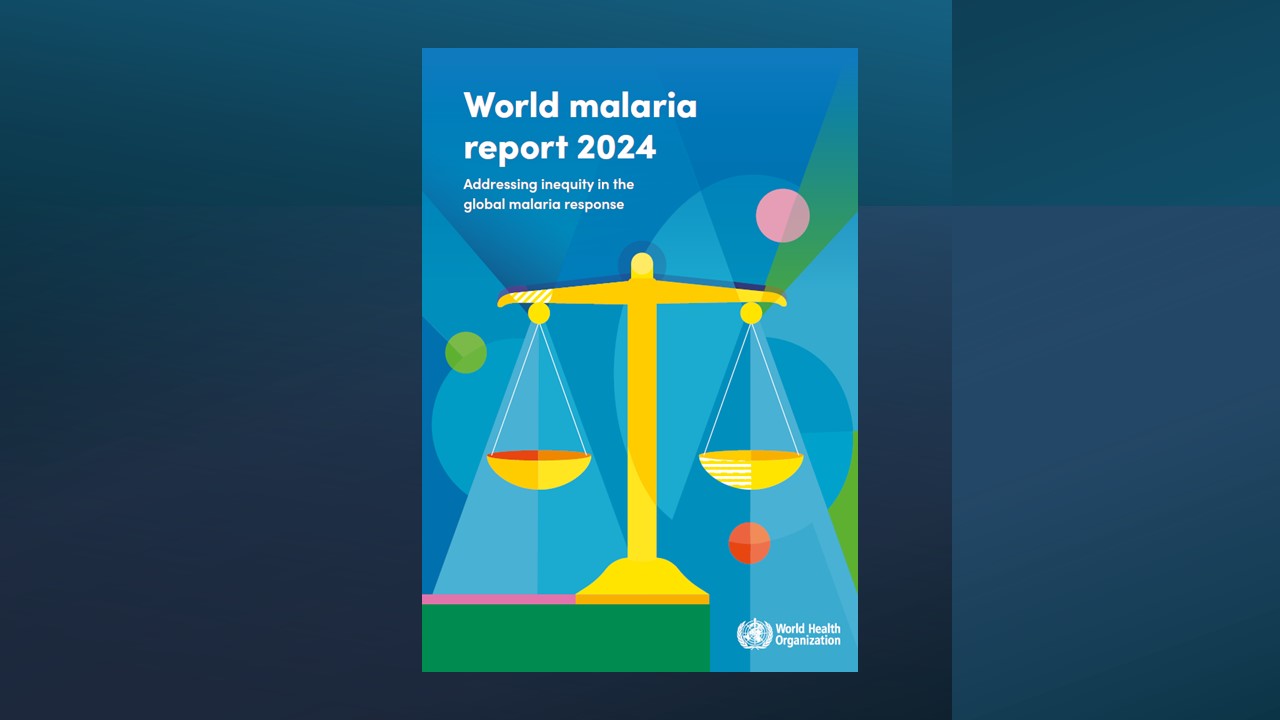La 2024 World Malaria Report, released today by the World Health Organization (WHO), highlights that while many lives have been saved from malaria since 2000, the disease remains a serious global health threat, particularly in the WHO African Region. This year’s report features a special chapter focused on equity, emphasizing the need for a more inclusive and effective response to reach those most vulnerable to malaria.

Since 2000, 2.2 billion malaria cases and 12.7 million deaths have been averted worldwide and progress has been made in many countries, including some high-burden countries such as India, where significant reductions in malaria cases have been achieved over the past years. However, progress towards key targets of the WHO Global Technical Strategy for malaria 2016-2030 remains strongly off track.
In 2023, malaria cases rose to 263 million – up by 11 million compared to 2022 – and deaths remained more or less stable with 597,000 recorded this past year. The WHO African Region continues to bear the heaviest burden of malaria, accounting for 94% of global cases and 95% of all deaths.
Malaria-endemic countries continue to grapple with persistent challenges including rising biological threats, such as drug and insecticide resistance – which are undermining the effectiveness of core malaria control tools. In many areas, natural disasters, climate change and population displacement are exacerbating already pervasive health inequities faced by communities living in poverty and vulnerable situations. Additionally, funding for malaria control globally remains inadequate to reverse current trends. The report estimates that in 2023, funding reached an estimated US$ 4 billion, less than half of the US$ 8.3 billion needed to meet global targets.
Nearly two-thirds of global malaria cases and deaths are concentrated in 11 African countries, with children under five being the most affected. Mali, where I live and work, is amongst these, having seen an increase of 1.4 million malaria cases over the past five years. In 2023, Mali accounted for 3.1% of global malaria cases and 2.4% of global malaria deaths. This alarming rise underscores the urgent need to harness innovation and accelerate progress towards global malaria targets.
The 2024 report highlights progress in the scale up of effective prevention tools such as new-generation nets, malaria vaccines, and seasonal malaria chemoprevention. However, amid the current slowdown in progress and funding constraints, the report emphasizes the need for urgent and accelerated action to curb the rising malaria threat in high-burden countries. It calls for coordinated action to implement a “Big Push” framework – a collaborative, multi- stakeholder effort aimed at reinvigorating global malaria control by better aligning the support from global partners with the specific needs of affected countries. One of the priority actions identified in the “Big Push” is the need to develop and prepare for the rapid introduction of new, transformational tools.
The report also highlights the need for those most impacted by the disease to be engaged in the design and evaluation of new tools to ensure they are accessible and effectively meet the needs of those most at risk. Malaria disproportionately affects vulnerable groups, not only due to biological and geographical factors but also because of social, structural, and economic disparities. It is a vicious cycle – malaria both stems from and deepens poverty, draining family resources, reducing productivity, and weakening national economies. Gender-based roles also play a key role, with women and girls, for instance, facing a greater risk due to domestic tasks which often take them outdoors during peak mosquito activity in the early morning and evening.
The African Center for Excellence in Molecular Engineering (ACEME), where I work, is being set up to support global efforts to fight vector-borne diseases, such as malaria. Our aim is to place African scientists, who are most affected by these diseases, at the forefront of developing innovative solutions to address this challenge, by building technical capacity and research infrastructure.

ACEME researchers at work in the laboratory at the University of Sciences, Techniques and Technologies of Bamako (USTTB). Photograph: ACEME
Our center, based at the University of Sciences, Techniques and Technologies of Bamako (USTTB), will provide a setting for African scientists to learn and develop advanced skills in genetic engineering, and contribute to the development of malaria control innovations, such as gene drive technologies. Because these technologies rely on the mosquito itself to do the work, they could represent a promising new tool to help reduce the burden of malaria in Africa, and reach vulnerable communities, irrespective of socio-economic status, geographic location or gender.
As we close this year and look to the new one, together, we can set the stage for meaningful progress in the fight against malaria. Prioritizing health equity, empowering African scientists, and fostering innovation, will be key to help create a more inclusive and effective response that can reach and meet the needs of those most vulnerable to malaria. Read the full report here.
